A lot of writers hold down a day job. Sometimes by choice, sometimes out of necessity. I decided to track down five writers with unusual day jobs and explore how their occupations help and hinder their writing.
Adam Baker (Cinema Projectionist)
First up is Adam Baker, author of Outpost, who once worked as a gravedigger and mortuary attendant. Is there a more apt job for a horror writer? But today's focus is his more recent job as a cinema projectionist. Adam explains:
![]() The Job
The Job
Back in the day, showing a movie meant wrestling big cans of 35mm film. Any decent-sized cinema would need a team of folk in the projection booth to keep the place running. These days movies download as big data files to digital projectors. The process is fully automated. The projectors sit in a dark, empty room and shut themselves on and off.
Typical Day
We would take delivery of plastic trunks containing twenty-minute reels of 35mm film and splice them together for exhibition. We would also tape together advertisements and trailers. We would weave the film through the projector gate and, at the appointed time, set it running.
Strange Things
The cinema was built in 1930. It used to host live shows. (The Beatles played in ’63, as did The Stones and Pink Floyd.) The movie theatre got refurbished to look like a modern multiplex but the old art-deco fixtures were still in place, hidden behind a contemporary facade. Screen 7 looked well-lit and well-maintained, but if you ducked behind a curtain you would find yourself standing on the old stage with a dust-furred lighting gantry overhead and sand-bag pulleys ready to lift backdrops and scenery. An old fifties-style crooner mic stood at the centre of the stage draped in webs. And if one descended some dank spiral stairs one would find oneself in a subterranean corridor of dressing rooms each with a tarnished bulb-mirror and rotted chair. I used to walk that basement corridor every night in order to throw a breaker switch and shut off the building lights. It was always super-creepy and I never hung around.
Impact on Writing
The job gave me lots of unsupervised time. I would set the evening performances to run then sit on a stool beside the projector and scribble stories.
Unexpected Writing Benefit
I watched a lot of crap movies over the years. It was educational. First time you watch Terminator: Salvation you are merely underwhelmed. Twentieth time you watch it, you start to develop some pretty specific ideas why it is utter pants.
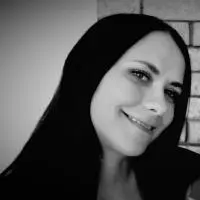 Michelle Garza (Night Custodian)
Michelle Garza (Night Custodian)
Michelle Garza co-wrote Mayan Blue alongside her sister, Melissa Lason.
The Job
Michelle spent half her life working as a Night Custodian, a physically demanding and often lonely occupation. Michelle explains:
Typical Day
The job was at an Elementary school, teaching kids from the ages of around five to twelve years old. Every morning I would begin by checking the entire campus for vandalism while opening gates and the restroom doors. I would then set up tables in the cafeteria for a breakfast program that gave students the chance to eat before going to class. Before the kids got there I would go around making sure the sidewalks were clear by sweeping them and sometimes using a back-pack leaf blower—I fucking hated that piece of shit, it was hot, heavy and often got me called a ghostbuster by some of the mouthier students. At breakfast I helped kids open their juices and milks, picked up trash they left on tables and kept the place clean and orderly until the first bell rang. The kids would run to class while I mopped up chocolate milk, apple juice and occasionally, if my luck had run out, vomit. Once I was finished I put the tables away so the physical education classes could begin and I spent the next three hours completing lists of random things like watering trees, moving furniture, retrieving bird carcasses from the playground, cleaning graffiti, and checking the restrooms for anything yucky. After that I set up for lunch which was just like breakfast only on a grander scale, it was a hundred times messier, noisier and more chaotic but nothing I couldn’t handle with an MP3 player loaded with heavy metal, a handful of chocolates and a few smoke breaks. I ended my day cleaning the kitchen, it was small and the ladies were considerate of me so kept it as tidy as possible. That was my schedule Monday through Friday for almost two years.
Strange Things
I encountered poop on sidewalks, smeared on doorknobs and the stinking aftermath of where it was used to write cuss words on walls. I stumbled over sleeping drunk people, chased off coyotes raiding garbage cans, and even got attacked by a vicious Chihuahua once.
Impact on Writing
I admit, there were times that I was supposed to be watering trees or delivering boxes of science supplies to classrooms but I was actually tucked away in my small office writing away. The job gave me plenty of alone time to focus on stories or write outlines but also allowed me social interaction so I could observe different people, how they talked, reacted to situations and how they treated people, especially the lowly janitor girl. It helped me create characters with more depth. The downside of this occupation was my exposure to my nemesis, the cockroach. I firmly believe after having those filthy bastards crawl across my feet or fall off of walls onto my shoulder I am still traumatized to this day.
Unexpected Writing Benefit
It might sound kind of like jumping into the bowels of Hades, and some days it felt like it, but there were moments that stuck with me. The children grew to love me and treated me like their cool, tattooed aunt, some came to me when they were feeling sick during lunch and asked me to walk them to the nurse’s office. Others spoke to me about the problems they had at school and I gave them useful, age appropriate advice, each time they left with big smiles and it made me feel like I helped them in some way. It gave me insight into the multitude of personalities people possess both old and young and aided me in developing believable characters at all stages of life. It was truly invaluable.
![]() Anya Martin (Business Journalist)
Anya Martin (Business Journalist)
Anya Martin, whose stories have been published in Borderlands 6 and Mantid Magazine amongst others, works as a business journalist during the day. Whilst it may not seem ‘strange’ for a fiction writer to facilitate writing through non-fiction writing, it is the stark contrast in subject matter and style that makes Anya's case particularly interesting. Anya explains:
The Job
My “day job” is as a business journalist, and my current biggest gig is writing regular articles for a major global newspaper targeted at high-end homebuyers who need jumbo mortgages. For the uninitiated, jumbo mortgages have loan amounts higher than the limits of government-backed mortgages which are $417,000 in most parts of the U.S. but can go up to $625,500 in some high-priced areas. So basically I write about a lifestyle most writers can’t afford.
Typical Day
I get up and go straight to my office and fire up my computer. I spend pretty much the whole day in front of it, except for trips to the kitchen for coffee and food. Most days, I’m writing lots of emails and setting up and doing phone interviews with bankers and other top executives—mostly CEOs and presidents—in the home lending and real estate industry. Also lots of Internet searches for background. Then reviewing my interview and other notes, fact-checking, writing, and reviewing comments/edits from my editor. That said, my jumbo mortgage column doesn’t require a 40-hour work week, so I have the flexibility to work in other journalistic writing or editing assignments, fiction-related research and writing if needed to make deadlines, and also the stuff I do as associate producer of The Outer Dark podcast on This Is Horror. I try to keep my journalism to day hours so I can work on fiction and other projects at night, but sometimes I do have to work late when sources aren’t available and a deadline looms.
Strange Things
I did do a story on how it can be challenging to get a mortgage if your house is shaped weird—like a geodesic dome or something. These can be hard to sell because it takes a buyer who’s cool with an unusual home design, so lenders are afraid if they had to foreclose on a mortgage, they’d be stuck with the house. When I wrote for local Atlanta publications, I used to do a lot of home and lifestyle stories. In one assignment I interviewed “collectors,” and visited a guy who collected memorabilia related to Goofy the dog from Disney. It was crazy how much Goofy stuff he had. His house was literally a shrine to Goofy in all sizes.
Impact on Writing
Right now, it’s mostly a good thing because the workload is part-time and pays well enough that I can limit the amount of other work I need to do to make ends meet. On the other hand, most of my career as a freelance journalist has drained and delayed my fiction writing. I had years of taking every assignment offered me just to earn enough to make ends meet. That’s the typical life of most freelancers. I wrote about a diverse range of topics and it could be very interesting and even fun, but writing is writing. And the fact is, it’s hard to have a writing day job and then write fiction because it taps into the same part of the brain. I usually warn enthusiastic young people that journalism may not be the best choice if you want to write fiction. That being said, proofing and copy-editing jobs don’t tap from the same place, so if you want a job that involves the written word, that could be better. I say that as many publications dial back those positions, but there is still a lot of editing work in the corporate world, tech world, healthcare, and occasionally academia. Most of my editing clients are healthcare and academia right now. Having a specialty area such as that can give you a leg up.
Unexpected Writing Benefit
Writing to make deadlines, even if it’s a different kind of writing, has sped up my writing in general. If I know where I am going on a story, I tend to write in fast spurts. Also, I am not afraid of deadline pressure and sometimes the looming deadline pushes me harder. The research skills I picked up as a journalist have served me well for stories that are set in different times or locations, such as most recently “The Un-Bride or No Gods and Monsters,” which features Elsa Lanchester as a character and is set mostly during a day in her life in 1923 London. That’ll be in Word Horde’s Eternal Frankenstein, scheduled for release in October. The biggest benefit, however, might be not being afraid to start in the middle or even write the end first. Journalistic articles can be paint by number in that if I know that one particular quote from a source has to be in the story, I’ll throw that down on paper first.
![]() Paul Tremblay (Mathematics Teacher)
Paul Tremblay (Mathematics Teacher)
Paul Tremblay is the author of Disappearance at Devil's Rock and A Head Full of Ghosts. His job might not seem unusual at first, as many writers are teachers. What sets Paul apart is that while a lot of teachers tutor in English and the Creative Arts, Paul teaches Mathematics. Paul explains:
The Job
I teach mathematics and coach a couple of sports at a private 7th grade through 12th grade boys school.
Typical Day
The cool part is that typical days change with the season. I'll describe a fall or winter day, which are the busiest. I get up at 6:10 am, shower, eat cereal (some form of Cheerios mostly) and drink OJ, then drive to school. I'm there by 7:40 most days. Homeroom starts at 7:45. I use the next 45 minutes to make copies of stuff and/or prep for the day. I teach four classes, each 45 minutes. My calculus class will meet two extra times during the week as well. I also have what's called a math lab assignment during my lunch periods 2/3 times a week. With any free periods I try to correct homework and/or quizzes and answer work emails. The school day ends at 2:30. I go across the street for either football or basketball practice. They run from 3:15 to 4:30ish. Unless it's a game day, then who knows when the game will end and how far of a trip I have to make with the team.
Strange Things
Coach 8th grade football. That still seems strange to me.
Impact on Writing
My school year is quite busy from September through February, and it's hard to get writing done then. But I have three months off in the summer and my spring isn't as busy because I don't have to coach. So the job both impacts and facilitates.
Unexpected Writing Benefit
Being around teens all day really helps my ear for voice and dialogue.
![]() David James Keaton (Repo Man … kind of)
David James Keaton (Repo Man … kind of)
David James Keaton is the author of Stealing Propeller Hats from the Dead. David has had some unusual jobs in his time, although currently he’s teaching Creative Writing. I’ll hand over to David. His responses mirror his fiction—they begin a little off-kilter and the weirdness is progressively ramped up until we reach an unprecedented level of bizarre.
The Job
My current job is teaching composition and creative writing at Santa Clara University.
Typical Day
Most days, I get up, do some melodramatic chin-ups while listening to embarrassing 90s nü-metal, eat an egg while going over course materials for the day, answer emails, lose the ongoing battle to resist Facebook, then walk to campus about two blocks away and Teach Amazing Mindblowing Stuff. After class, I head to my office for office hours, and when no students show up I stand in my colleagues’ doorways and ask them what movies they’ve seen. Or I refill the water cooler jug, which is always empty, with a dramatic display of chin-up-forged power and a lot of sloshing.
Strange Things
The strangest thing by far that I do as part of my job is standing in front of a room full of people and having them listen to what I say as if I didn’t spend the previous evening watching Darkman. It’s a leg up from my previous teaching job in Kentucky though, where the strangest part of my day was sharing a copy machine with Danny Lloyd, the guy who played the kid in The Shining, and not begging him to solve hedge mazes with me. Oh wait, do you mean what is the strangest thing I’ve had to do as part of any job? Because I’ve had much weirder jobs. Years back, I wanted to be able to say I was a “repo man” after seeing Repo Man (the original movie, not the organ-harvesting versions with Jude Law or that wack musical, though I’d like to claim I was that kind of repo man, too), but the closest I could get was driving repossessed cars from the bank parking lot to the auction lot. But you can be damn sure I would brag, “Yeah, I drive repo cars, no big deal” to anyone who asked, just to keep it vague like I was boosting them. Kinda like saying you’re from Detroit when you’re really from Ann Arbor. I’m from Toledo actually, which means we pretended to be from Ann Arbor.
Also my closed-captioning job was fucking nuts in a thousand ways. It forever ruined my reality-TV watching enjoyment for one, since I was able to see behind the scenes while captioning “unsweetened tapes” and realized way too early on that the world was lies. Except for Deadliest Catch. That shit is real. Or it was when I captioned it. The research I did to caption Deadliest Catch makes me officially an Alaskan crab-boat captain, recognized by any court in the country. Quiz me!
Impact on Writing
If we’re talking about my current job, moving to California has inspired me to write about the area quite a bit, just as living in Louisville, Kentucky did, so I’ve written six short stories this summer so far, including stuff inspired by Santa Cruz, surf culture and their turf wars, the San Francisco Bay Area pier, and this weird dive bar a block from my house that I’m currently stalking. As far as having the chance to teach creative writing out here instead of just composition, it makes me work a lot harder*.
*...to find creative ways to keep my students from Googling my name and reading weird shit.
Unexpected Writing Benefit
Closed-captioning has helped my grammar more than all 12 years of my undergraduate education.
So there we have it, five strange day jobs. Hopefully this article has not only been interesting but provided you with some ideas and takeaways to help you get the most out of your day job.
What’s the strangest day job you’ve had? How did it impact your writing? What were some of the unexpected benefits? See you in the comments.
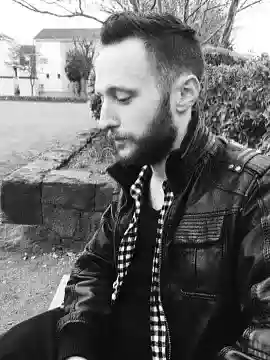
About the author
Michael David Wilson is the founder of the popular UK horror website, podcast, and publisher, This Is Horror. Michael is the author of the novella, The Girl in the Video, and the novel, They’re Watching, co-written with Bob Pastorella. His second novella, House of Bad Memories, lands in 2021 via Grindhouse Press. His work has appeared in various publications including The NoSleep Podcast, Dim Shores, Dark Moon Digest, LitReactor, Hawk & Cleaver’s The Other Stories, and Scream. You can connect with Michael on Twitter @WilsonTheWriter. For more information visit www.michaeldavidwilson.
 The Job
The Job
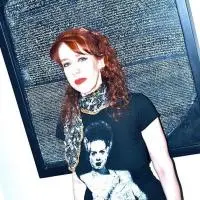 Anya Martin (Business Journalist)
Anya Martin (Business Journalist)
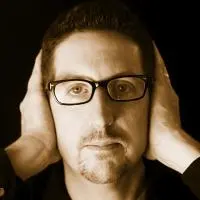 Paul Tremblay (Mathematics Teacher)
Paul Tremblay (Mathematics Teacher)
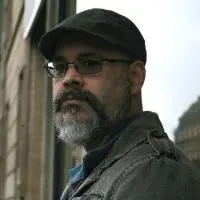 David James Keaton (Repo Man … kind of)
David James Keaton (Repo Man … kind of)








